The recruitment process for security guards in a security company in India typically involves
several stages to ensure the selection of competent and reliable personnel. Here are the key steps:
The security company announces the vacant security guard position. This announcement can be made through various channels, including newspapers, radio, TV, social media, online job boards, and discussion forums. - A robust publicity campaign attracts a larger pool of applicants, increasing the chances of finding qualified candidates.
Interested candidates are instructed to gather at a specified location on a designated date. During this phase, applicant’s complete forms and may undergo tests to assess their language proficiency (usually English, Marathi, Hindi) and other relevant skills. Depending on the employer's requirements, additional assessments may evaluate computer
Employers conduct background checks to verify applicants' qualifications and criminal records. Ensuring that applicants provide accurate information is crucial. Contacting the police department for criminal checks and verifying academic credentials helps weed out false claims
Successful candidates proceed to the interview stage. Interviews assess not only qualifications but also communication skills, problem-solving abilities, and suitability for the security guard role.
Applicants undergo medical examinations to ensure they meet physical fitness requirements. Good health is essential for performing security duties effectively.
Based on screening test results, medical checks, and background investigations, employers select one or more successful applicants. Selected candidates receive further instructions on the next steps
Security personnel training commences with a focus on uniform and grooming. Wearing a uniform is essential for all security work, as it signifies authority. At Glenhawk, we maintain stringent guidelines regarding uniforms, equipment, grooming, and discipline to enhance the effectiveness of our security officials.
The training covers the significance of soft skills and the art of communication. It provides techniques for effective communication and boosts confidence through practical exercises. Throughout the course, we emphasize the professional standards required for the profession and teach how to interact appropriately with people
Our training covers maintaining documentation in accordance with PSARA (Private Security Agencies Regulation Act) and client requirements. Additionally, we focus on developing skills for incident reporting, shift report updates, and attendance checks
Our security training curriculum encompasses ethics and professional conduct, focusing on the organization's core values, fostering an ethical work environment, and equipping trainees with the ability to recognize and address potential ethical dilemmas
Every security guard adhere to established protocols that guarantee the safety of all individuals. Our training in Crowd Control and Traffic Management equips them to control and manage crowds and traffic effectively and efficiently, utilizing de-escalation techniques to reduce liability and prevent damage to property, thereby saving lives and avoiding injuries.
Our Training Center is dedicated to delivering a systematic and uniform training program that equips individuals with the skills to identify and handle sexual harassment in the workplace. We train our security staff in effective strategies to both address and prevent such incidents.
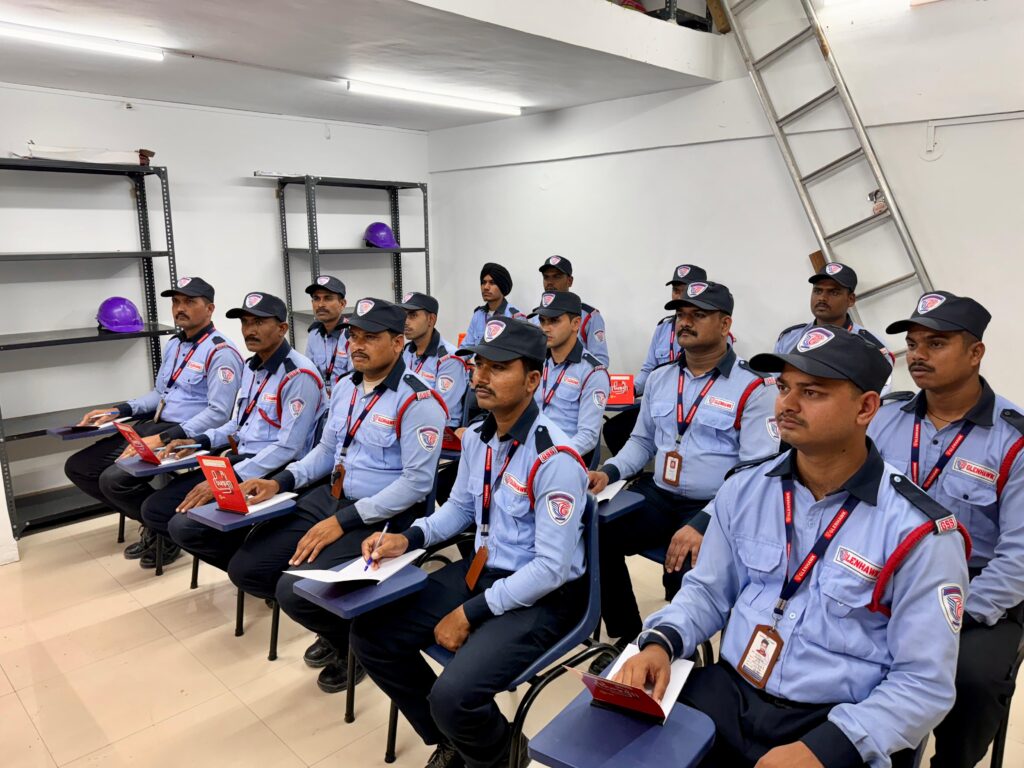
Curriculum: The training follows the syllabus prescribed by the Private Security Agencies
Regulation Act (PSARA) Rules 2007.
Content:
Physical drill basics: This includes imparting physical drill training and perfecting the bearing
of raw recruits.
Coping with unexpected situations: Security personnel are trained to handle various
unexpected scenarios.
Classroom sessions: Covering theoretical aspects.
On-the-job and site-specific training: Practical training to adapt to real-world security
challenges.
Promotional and specialised training: Enhancing skills and knowledge.
Instructors: Ex-defence service personnel with experience in handling difficult situations
Target audience: Ex-servicemen and ex-policemen transitioning to security roles.
Curriculum: Aligned with PSARA rules.
Focus: Reinforcing skills and knowledge.
Instructors: Experienced personnel with military backgrounds.
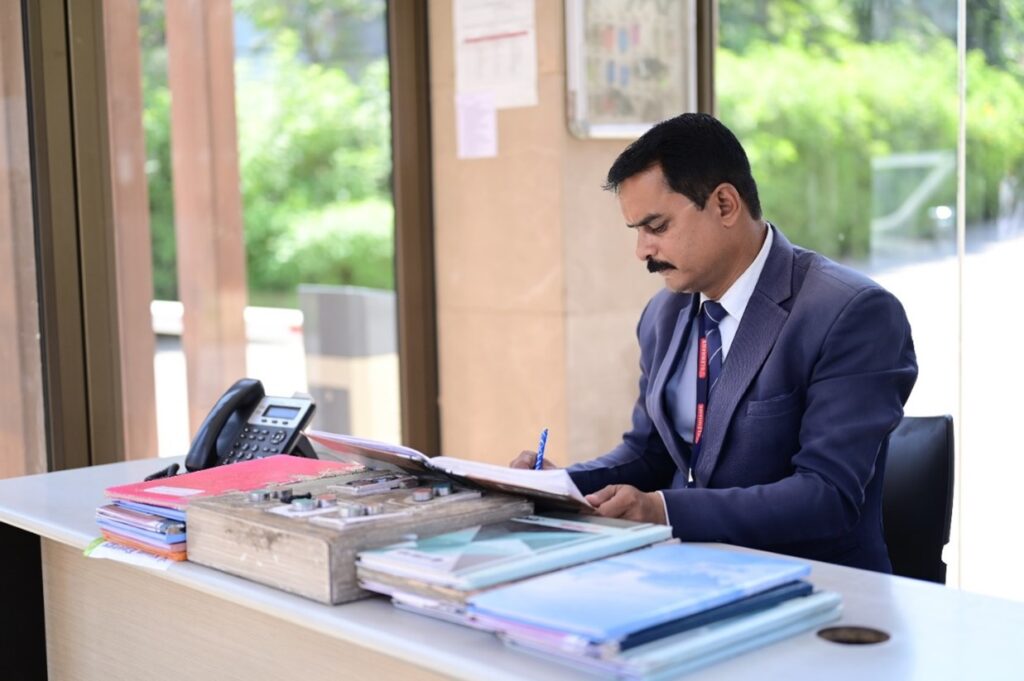
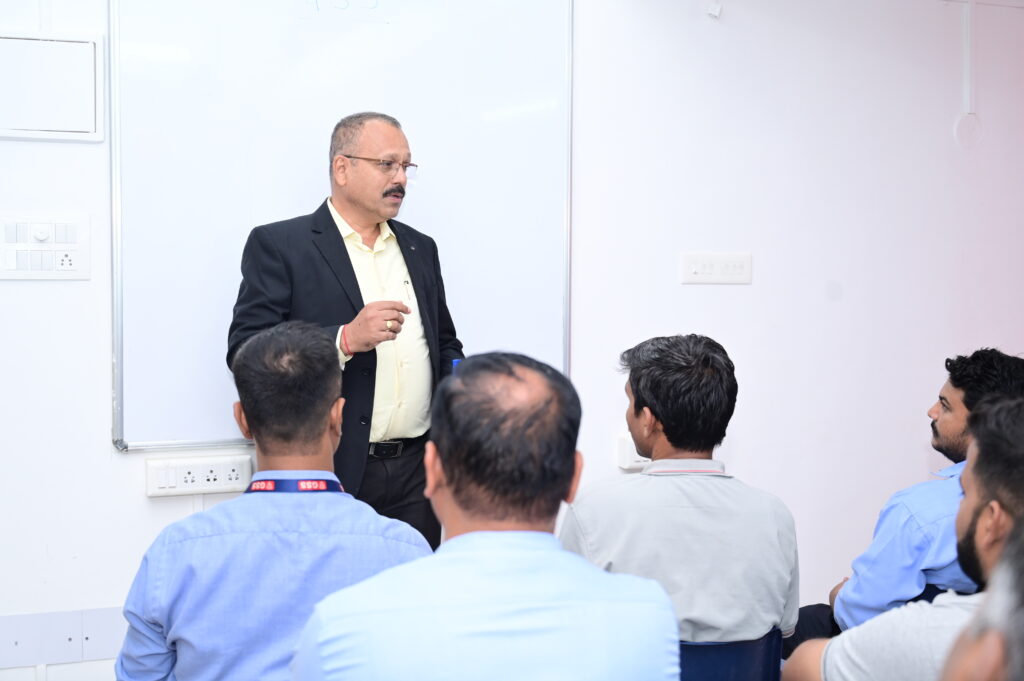
Curriculum: As per PSARA guidelines.
Aim: Preparing security supervisors for leadership roles
-Threat perception
– Protection of principal persons (PP)
– Rescue procedures
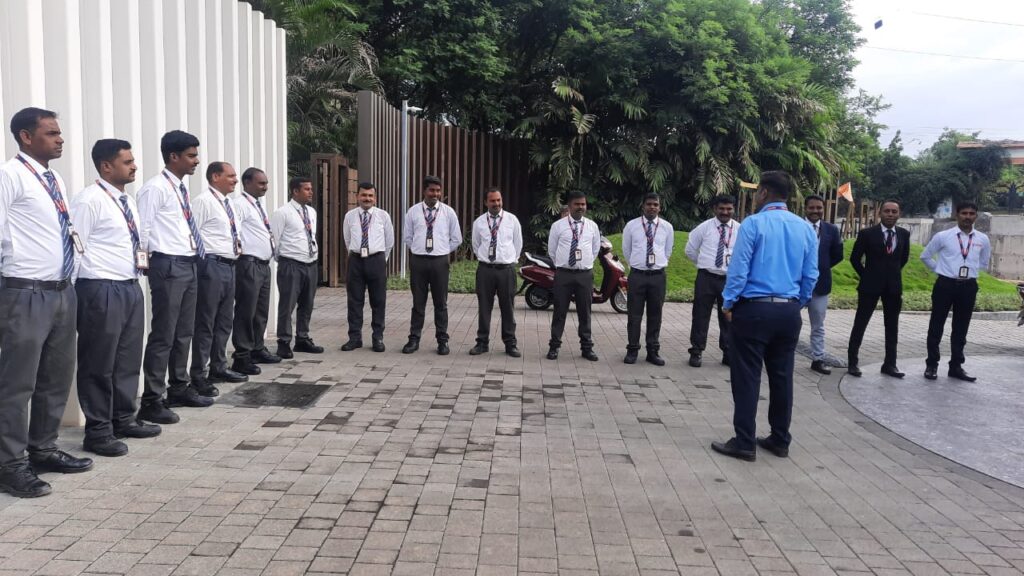
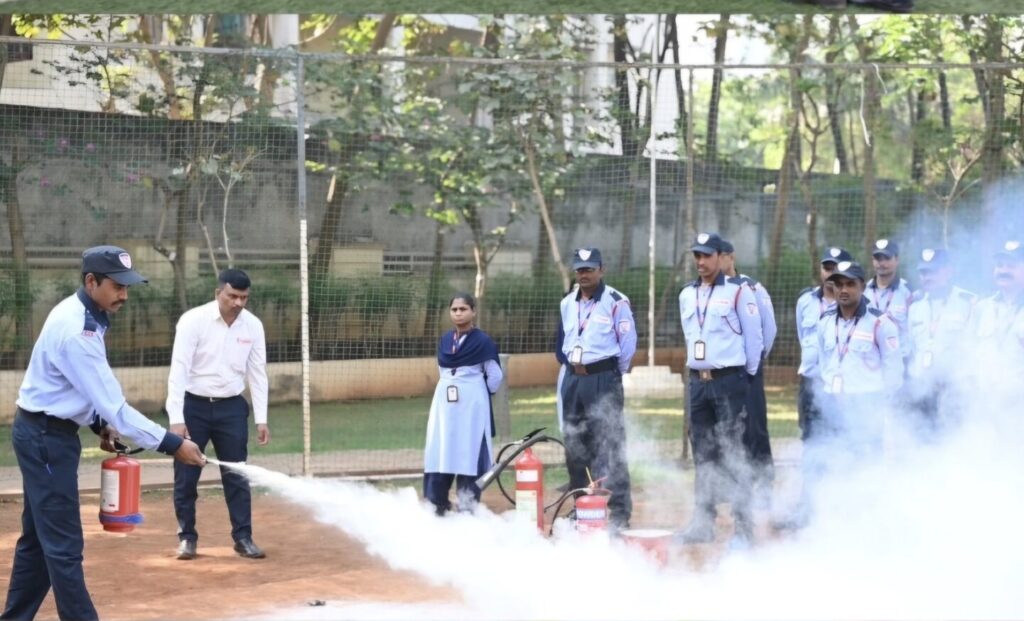
– Security concepts
– Access control
– Surveillance and CCTV usage
– Fire types and extinguishers
– First aid and CPR